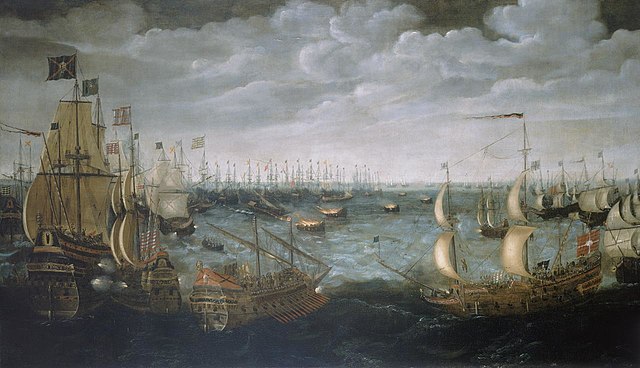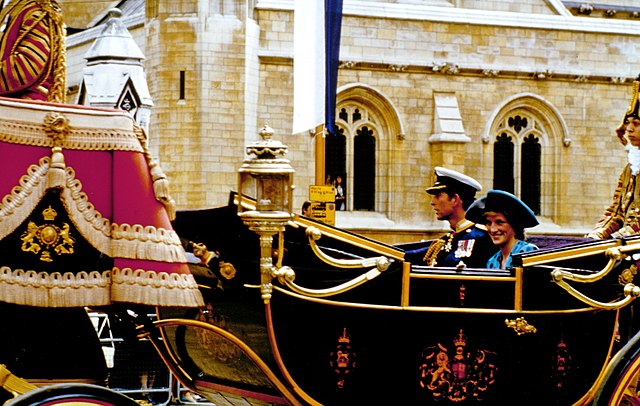
July 29th is a day marked by numerous significant events throughout history, encompassing a wide array of subjects, from impactful political decisions to groundbreaking scientific achievements. In this article, we’ll explore the most notable occurrences that have taken place on this date, providing you with a comprehensive overview of the day’s historical significance.
Historical Discoveries
1588: The Spanish Armada is sighted off the coast of Cornwall, England. The Spanish Armada was a fleet of ships sent by King Philip II of Spain to invade England. The ensuing conflict, which ended in a decisive English victory, marked a turning point in the Anglo-Spanish War and solidified England’s naval dominance.
1836: The Arc de Triomphe is officially inaugurated in Paris on July 29th. The Arc de Triomphe is a monumental arch located at the western end of the Champs-Élysées. This iconic landmark was commissioned by Napoleon Bonaparte to honor those who fought and died for France during the French Revolutionary and Napoleonic Wars.
1858: The United States and Japan signed the Treaty of Amity and Commerce. This treaty, also known as the Harris Treaty, established diplomatic and economic relations between the two countries. It was the first of several unequal treaties that Japan signed with Western powers in the late 19th and early 20th centuries. Despite its unequal provisions, however, the Harris Treaty was an important step towards Japan’s modernization and integration into the global economy
1900: King Umberto I of Italy is assassinated by an Italian anarchist named Gaetano Bresci. As King, Umberto was known for his conservative political views and his support of the military. The event led to increased political instability in Italy and contributed to the eventual rise of Fascism in the country.

Scientific Breakthroughs
1957: The International Atomic Energy Agency (IAEA) is established by the United Nations. It had the mission of promoting the peaceful use of nuclear energy and preventing its military use. Since its establishment, the IAEA has played an important role in international efforts to prevent the spread of nuclear weapons and promote nuclear disarmament. It is a particularly important institution in the field of nuclear technology.
1958: The National Aeronautics and Space Administration (NASA) is established. The United States government established NASA in response to the Soviet Union’s launch of Sputnik 1, the world’s first artificial satellite. Since its inception, NASA has been at the forefront of space exploration, conducting numerous groundbreaking missions and making countless scientific discoveries.

Cultural Events
1948: The Summer Olympics open in London. It was originally scheduled to be held in 1944, but was cancelled due to World War II. Also known as the “Austerity Games”, the 1948 Olympics was marked by a sense of frugality and a focus on athletic competition. It marked the return of Germany and Japan to the Olympic competition, though they were not invited to participate in the opening ceremony. Notably, the 1948 Olympics was also the first Olympics to be broadcast on television, although the coverage was limited to viewers in the United Kingdom.
1954: J.R.R. Tolkien’s “The Fellowship of the Ring” is published. The book was the first installment of what would become one of the most beloved works of fiction in the 20th century. Its success helped establish the fantasy genre as a legitimate literary form, paving the way for authors such as George R.R. Martin and J.K. Rowling. The trilogy has since been translated into over 40 languages and has sold millions of copies worldwide. Indeed, it has solidified Tolkien’s place as one of the most influential authors of the century.
1981: Prince Charles, the heir to the British throne, married Lady Diana Spencer in a lavish ceremony at St. Paul’s Cathedral in London. The event, which was watched by an estimated 750 million people worldwide, marked one of the most iconic moments in recent British history.

Notable Birthdays
- Alexis de Tocqueville (1805–1859) – A French political thinker and historian. Tocqueville is best remembered for his influential work “Democracy in America”. It is a comprehensive study of the United States’ political and social systems during the early 19th century. His insightful analysis of American democracy remains relevant and widely studied to this day.
- Booth Tarkington (1869–1946) – An American novelist and playwright. Tarkington is famous for his works “The Magnificent Ambersons” and “Alice Adams”, both of which won the Pulitzer Prize for Fiction. His writings often explored themes of social change and the impact of industrialization on small-town America.
- Benito Mussolini (1883-1945) – An Italian politician and dictator. Mussolini founded the Italian Fascist Party in 1919 and became the Prime Minister of Italy in 1922. Leading the country into an era of authoritarian rule, he sought to establish a totalitarian state in Italy, promoting nationalism, corporatism, and anti-communism. Mussolini formed a close alliance with Nazi Germany’s Adolf Hitler and supported Germany in World War II. However, Italy suffered a series of military defeats, and Mussolini was deposed by his own government in 1943.
- Clara Bow (1905-1965) – An American silent film actress. Bow, nicknamed the “It Girl,” was one of the leading sex symbols of the Roaring Twenties. She appeared in numerous popular films, including “It” and “Wings.” Her vivacious on-screen presence and distinctive style made her a major cultural icon of the era.
- Wil Wheaton (1972) – An American actor, writer, and producer. Wheaton is best known for his roles as Wesley Crusher on the television series “Star Trek: The Next Generation” and as a fictionalized version of himself on the sitcom “The Big Bang Theory. Moreover, he is also an accomplished author. He has written several books and columns on various topics, including technology and gaming.
Final Word
As we look back at all the events that took place on July 29th throughout history, we are reminded of how much has happened in the world around us. From significant political events to far-reaching cultural milestones, this day serves as a reminder of the progress we have made as a society. It is also a reminder of how far we have yet to go. Nonetheless, we can take inspiration from the people and events of the past to create a better future for ourselves and those who come after us.
Was this page helpful?
Our commitment to delivering trustworthy and engaging content is at the heart of what we do. Each fact on our site is contributed by real users like you, bringing a wealth of diverse insights and information. To ensure the highest standards of accuracy and reliability, our dedicated editors meticulously review each submission. This process guarantees that the facts we share are not only fascinating but also credible. Trust in our commitment to quality and authenticity as you explore and learn with us.
